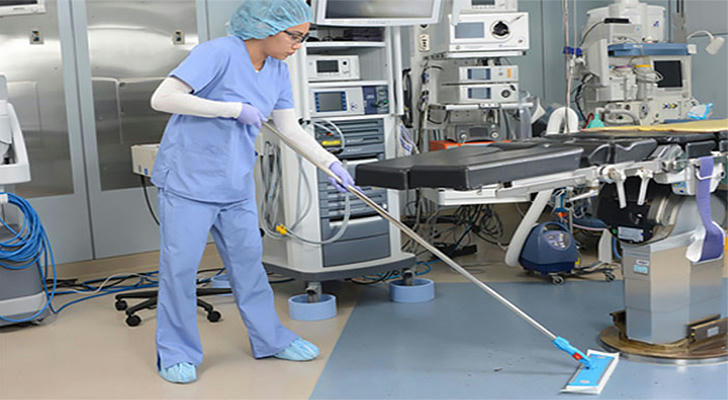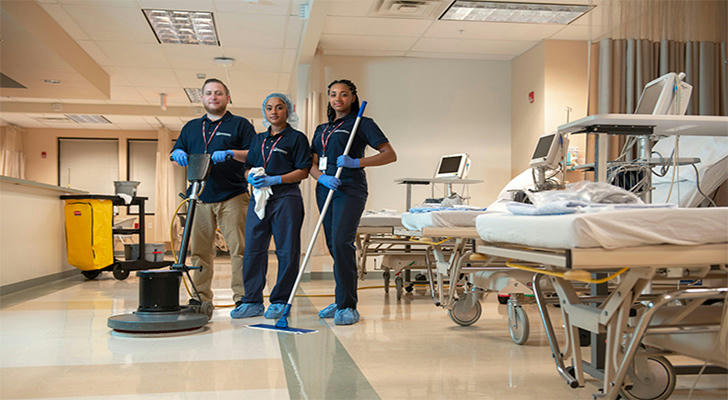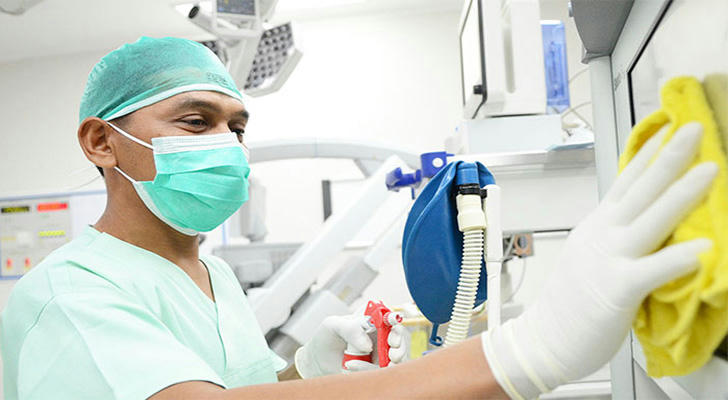The Importance and Current Situation of Hospital Cleaning
In Europe, hospital cleaning is a crucial aspect of ensuring patient safety and maintaining a sanitary medical environment. Hospitals are not only places for treating illnesses but also serve as vital barriers against the spread of diseases. The cleaning process affects not only the hygiene standards of the facility but also the recovery process of patients. Therefore, the significance of hospital cleaning cannot be overstated.
However, the current shortage of hospital cleaning personnel poses challenges to the normal operations of healthcare facilities. As the number of patients increases and cleaning standards rise, many hospitals find it difficult to meet the demand for cleaning staff. To attract more talent, many hospitals have started to increase the salaries of cleaning personnel to alleviate the shortage.

I.Important Considerations for Hospital Cleaning
Several key considerations must be followed during the hospital cleaning process to ensure effective cleaning and safety.
Use Appropriate Cleaning Agents: Hospital cleaning agents should effectively kill bacteria and viruses. Common disinfectants include chlorine-based disinfectants, alcohol-based disinfectants, and quaternary ammonium disinfectants. Choosing the right cleaning agent not only improves cleaning effectiveness but also reduces the risk of cross-infection.
Clean by Zone: Hospitals typically have designated areas such as patient rooms, operating rooms, and emergency rooms. Each area may have different cleaning standards and methods, and cleaning staff must follow specific requirements to ensure that the hygiene standards for each zone are met.
Personal Protective Measures: Cleaning personnel should wear appropriate protective gear while working, such as gloves, masks, and protective clothing. This not only protects their health but also prevents cross-infection during the cleaning process.
Regular Training: Cleaning personnel need to undergo regular training to stay updated on the latest cleaning standards and disinfection techniques. Training should cover not only operational skills but also infection control and safety knowledge.
II. The Current Shortage of Hospital Cleaning Personnel
Recent surveys indicate that many hospitals across Europe are facing a shortage of cleaning staff. This situation arises from various factors, including difficult working conditions, low pay, and a lack of public awareness regarding the importance of cleaning jobs.

III.Case Studies
1. Case Study One: Cleaning Staff Shortage in Germany
In Germany, a large hospital faced patient dissatisfaction due to untimely cleaning of patient rooms caused by a shortage of cleaning personnel. To address this issue, the hospital decided to raise the salaries of cleaning staff and provide more training opportunities. This approach not only attracted new cleaning personnel but also improved the job satisfaction of existing employees, ultimately enhancing the hospital’s cleanliness.
2. Case Study Two: Salary Adjustment in a UK Hospital
During the pandemic, a public hospital in the UK discovered that the workload for cleaning staff had dramatically increased, adversely affecting cleaning quality. The hospital management decided to increase the salaries of cleaning personnel and enhance employee benefits. This initiative received a positive response from staff, leading to a surge in job applications, which allowed the hospital to quickly replenish its cleaning team.
3. Case Study Three: Cleaning Training in a French Hospital
A hospital in France experienced several cases of hospital-acquired infections due to inexperienced cleaning staff. To rectify this, the hospital launched a specialized training program aimed at improving the professional skills of its cleaning personnel. Through systematic training, cleaning staff learned advanced cleaning and disinfection methods, resulting in significant improvements in the hospital’s hygiene and an increase in patient satisfaction.

IV.How to Apply for a Hospital Cleaning Position
For individuals interested in applying for hospital cleaning positions, the following steps can be helpful:
Understand Job Requirements: Different hospitals may have varying requirements for cleaning staff. Applicants should carefully read job descriptions to understand job duties, work hours, and necessary skills.
Prepare a Resume: Candidates should create a concise resume that highlights relevant work experience and skills. Previous cleaning or healthcare experience should be emphasized if applicable.
Attend an Interview: During the interview, candidates can showcase their cleaning skills and understanding of hospital cleaning practices. Knowledge of hospital environments and infection control will be critical factors during the interview.
Undergo Training: Once hired, hospitals typically provide systematic training to help new employees familiarize themselves with the workflow and cleaning standards.

V. Conclusion
Hospital cleaning is a vital aspect of ensuring patient safety and the smooth operation of healthcare facilities. Although the current shortage of cleaning personnel remains an issue, hospitals can attract more talented individuals to this field by increasing salaries and providing training. It is hoped that this article raises public awareness of the importance of hospital cleaning work and encourages more people to pursue this essential profession, contributing to public health protection.
